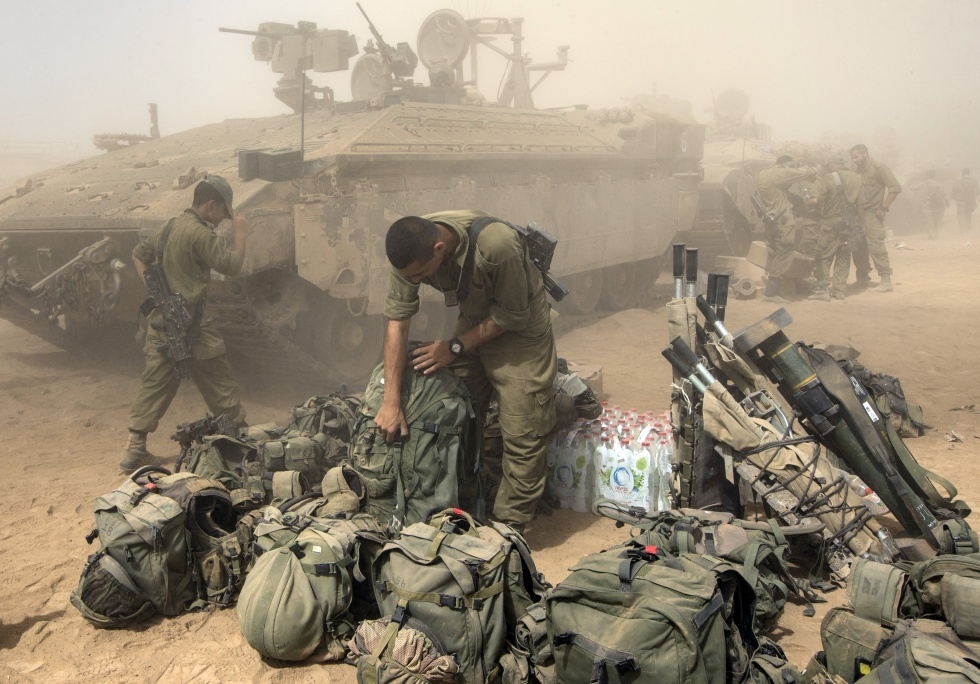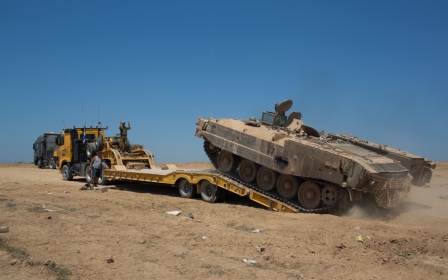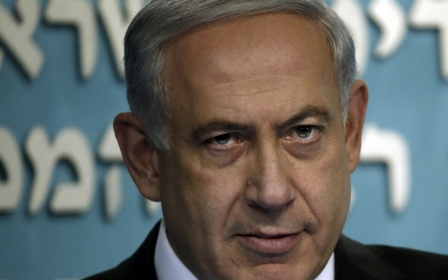The price of war

Less than two weeks ago, Israel was still at war in Gaza and the atmosphere of the general public in Israel was of frustration, bordering on despair. But then came the ceasefire, and as always, after these periodic rounds of violence, everything in Israel went back to normal. Fifty days of rocket launching from Gaza disrupted life in Israel, but the damage was relatively small, incomparable with the devastation in Gaza. Seventy-two casualties among soldiers and civilians were more than Israel expected, but not enough to create national trauma. Even discussions in the media on “who won the war” died away quite quickly. As if the war didn't happen. Almost.
From the fate of the siege on Gaza to the initiatives to resume the Israeli-Palestinian negotiations or approach the United Nations to set a date for an end of Israeli occupation, up to the change of spirits within the Palestinian people and its implication on the conflict, the long-term effects of the war are yet to be seen. But a shorter-term effect is already felt in Israel: the budgetary effect.
The Israeli army claims that 50 days of armed conflict cost 9 billion shekel ($2.6 billion), meaning that each day of fighting cost Israel $50 million. If the army is fully compensated for Operation Defensive Edge, the defence budget will reach a record of 72 billion shekels (more than $20 billion), 18 percent of the whole budget, and the highest rate in the past 30 years.
For many years, the defence budget was a kind of taboo in Israel. Nobody dared to touch it or doubt the necessity of every shekel put into it. The army was above all, and the citizens' duty was to finance it without question. But in the past decade, and especially after widespread social demonstrations three years ago, the atmosphere has changed. Hundreds of thousands of Israelis took to the streets to demand better social services. The burden of the defence budget was depicted as one of the main reasons for the fact that Israel trails way behind other member countries of the Organisation for Economic Co-operation and Development (OECD) in civil expenditures.
Suddenly, questions were raised about the generous benefits given to career officers, like early retirement, with full pension payments, at the age of 45, while "regular" Israeli men retire at the age of 67. The Finance Ministry, supported by large parts of the press, criticised the army for uncontrolled spending, and for its lack of transparency. The Ministry of Defence and the army managed mostly to get what they wanted, sometimes using real or imagined security threats in order to justify their budgets, but they were no more the "untouchables" they used to be.
The current finance minister, Yair Lapid, based much of his extremely successful electoral campaign on his promise to find "where the money went", aiming mainly at the defence budget. Fifteen percent of Israelis, most of them from middle to upper class, bought these promises and voted for him. His initiative to cancel the 18 percent value added tax (VAT) on those buying their first apartment (provided that they served in the army, thus excluding Israeli-Arabs and Ultra-Orthodox Jews, but this is another matter) was an effort to fulfil these promises. The cost of this generous benefit, estimated at almost a billion dollar per year, was supposed to come also from the army's pockets.
The war in Gaza has shattered all these dreams. Last week, the government agreed for a two percent cut in all ministries, except the Defence Ministry, compromising the already weak social services. In addition to the $2.6 billion it is asking for right now, the army is demanding to add $3.1 billion for the next year budget of 2015. As the economy was heading for a slow-down, even before Operation Protective Edge, it is clear that the government will find it hard to finance these huge sums.
Just a few months ago, a commission appointed by the government recommended to dramatically increase the social expenditure to 6.9 billion shekels per year ($2 billion) in order to extract Israel from its position as the country with the worst poverty rate among the 34 members of the OECD. It is already clear that these recommendations will be thrown away and Israel's poor, mainly Arabs and Ultra-Orthodox Jews, will stay poor. Services like education, health and transportation will surely be hit. The Israeli public, which voted for more social services, will get less.
The current problem facing Israeli Prime Minister Benjamin Netanyahu's government is whether to enlarge the deficit or to raise taxes in order to finance the increase in military spending. This might turn out to be not only an economic problem, but also a political one. Finance Minister Lapid, already facing a fall in his popularity in the polls, opposes any new taxes and insists on his initiative to cancel VAT on new apartments, both issues considered important to his middle class voters. Netanyahu, who is usually very conservative on the economic front, is reluctant to let the deficit get out of hand.
The common wisdom in Israel is that coalition parties refrain from going to early election after less than two years in power. Therefore, most political analysts predict that some compromise will be found and next year’s budget will get the majority it needs in the Knesset.
But this case may be different. Some of the senior leaders in Lapid's party, Yesh Atid, had already expressed their frustration from the political impasse regarding the negotiations with the Palestinians. After the unhappy results of the last war in Gaza, their voices are heard even louder. A disagreement on the budget might serve as good excuse to leave the coalition. Will it lead to early elections in the beginning of next year? It is a possibility not to be excluded.
- Meron Rapoport is an Israeli journalist and writer, winner of the Napoli International Prize for Journalism for a inquiry about the stealing of olive trees from their Palestinian owners. He is ex-head of the News Department in Haaertz, and now an independent journalist.
The views expressed in this article belong to the author and do not necessarily reflect the editorial policy of Middle East Eye.
Photo credit: An Israeli soldier prepares his equipment at an army deployment area, on the southern Israeli border with the Gaza Strip, on August 1, 2014 (AFP)
New MEE newsletter: Jerusalem Dispatch
Sign up to get the latest insights and analysis on Israel-Palestine, alongside Turkey Unpacked and other MEE newsletters
Middle East Eye delivers independent and unrivalled coverage and analysis of the Middle East, North Africa and beyond. To learn more about republishing this content and the associated fees, please fill out this form. More about MEE can be found here.





